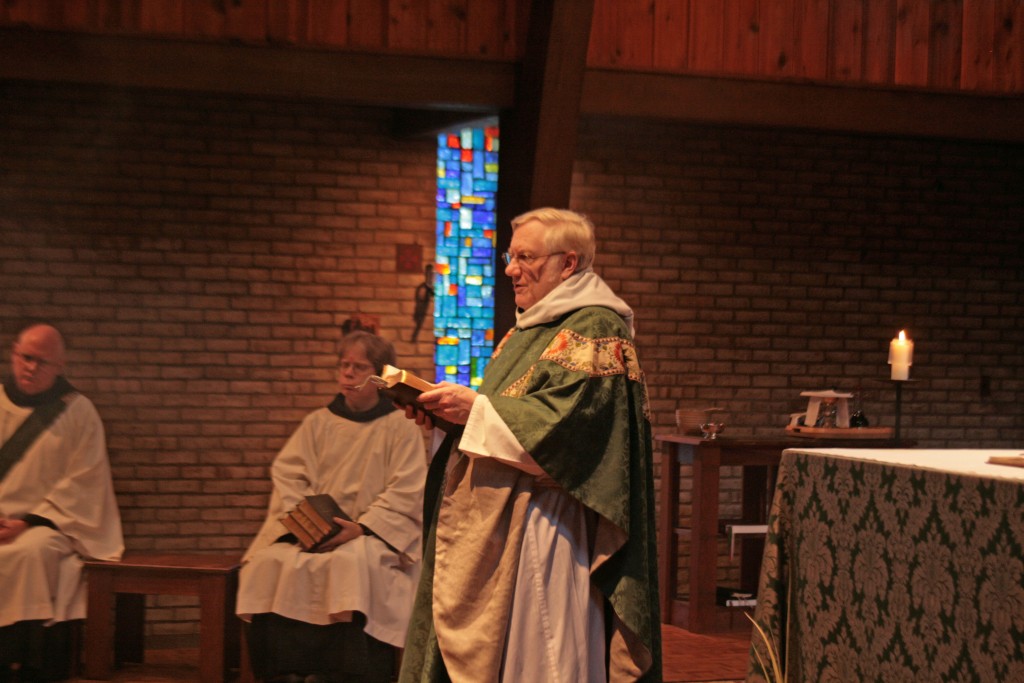Author Archives: Brother Abraham
Abbey Videos
The videos embedded below show several aspects of monastic life.
We also have a YouTube channel containing videos of sermons and other events.
What Do You Do In The Monastery All Day? Part 1
What Do You Do In The Monastery All Day? Part 2
What Do You Do In The Monastery All Day? Part 3
Sermon Archive
Featured
All of these sermons were delivered in the Abbey Church. To make it easier to find a certain topic or lectionary day, click one the blue tags below (Holidays, Sundays Year A, Sundays Year B, Sundays Year C). The sermons are posted in order of their calendar date, so not all in the same lectionary year are together – keep scrolling down, and you will find more from earlier calendar years.
Other sermons can be found on our YouTube channel.
Many of Abbot Andrew’s sermons are posted on his blog.

Advent IV Year B: Advent Is Too Short
II Samuel 7:1-11
Romans 16:25-27
Luke 1:26-38
December 24, 2023 Abbey Church Abraham
Many people think that Advent is too short (especially this year.) Many of those same people consider Advent to be their favorite season – sitting in the dark, waiting for Jesus to show up. Those two actions (“waiting” and “showing up”) describe our relationship with God: God acts and we receive. God does everything – the term for that is “Grace”. Of course, whenever we speak of either God or humans, things get tricky. Yes, God does everything, but in order for us to receive the Grace to the most benefit, we need to do something (even simply waiting is doing something.)
The story of Joseph and Mary being turned away from the inn at Bethlehem is a useful focus for Advent disciplines: making sure that our lives are not so full of ourselves that Jesus has no place to go, and working at recognizing Jesus around us so that we let Him in instead of turning Him away.
So, in a way, at least from our perspective, Grace does sometimes include works. But even our works are a product of Grace: God created this beautiful universe, so we work to stop messing it up; God comes to live with us and in us, so we work to see and serve Him in everyone; Jesus is coming, so we wait in the dark.
Grace plays a big part in the collects for the Sundays in Advent. The first three mention God’s Grace specifically, and the fourth one acknowledges God’s daily presence in our lives and our desire to have a place for Jesus in them.
People have been working on figuring out the relationship between Grace and Works for a long time, and the arguments have not tended to result in good things. So, instead of trying to figure it out in this sermon, we should stick to what we know: Advent is too short. Jesus is already here, no matter what we do. AMEN
Issue 296: Christmas 2023 (PDF)
New Video Series
We have made three new videos/slideshows showing various aspects of life here at St. Gregory’s Abbey. They show the good and the bad, the mundane and the sublime, and everything in between. Look for them on our YouTube Channel.
What Do You Do In The Monastery All Day? Part 1 is already live.
What Do You Do In The Monastery All Day? Part 2 is scheduled for November 8, 2023.
What Do You Do In The Monastery All Day? Part 3 is scheduled for February 8, 2024.